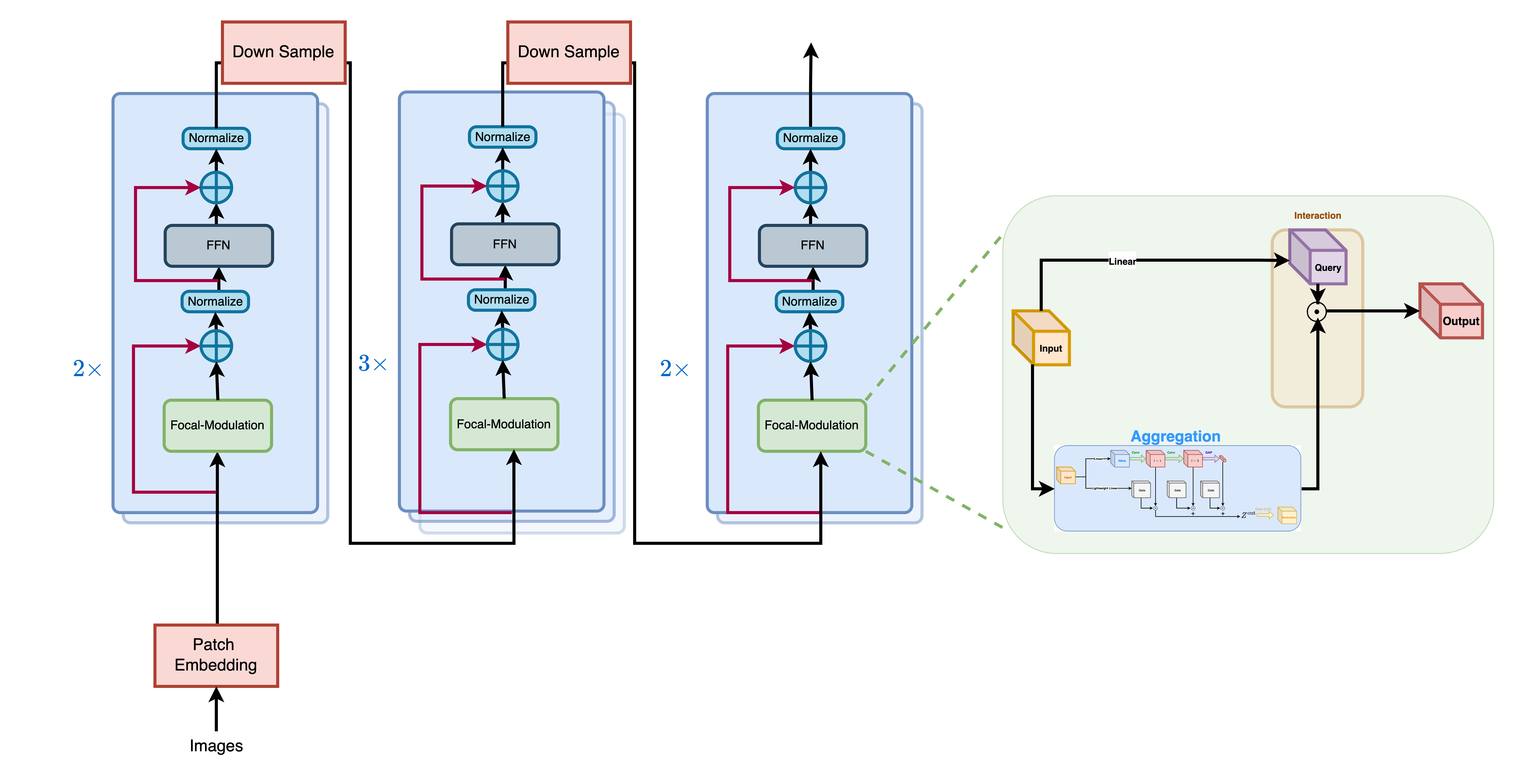模型:
microsoft/focalnet-base
 英文
英文FocalNet(小型且具有大感受野的模型)
FocalNet模型在ImageNet-1k数据集上以384x384的分辨率进行了训练。该模型首次在杨等人的论文 Focal Modulation Networks 中提出,并于 this repository 首次发布。
免责声明:发布FocalNet模型的团队并未为该模型撰写模型卡片,因此此模型卡片由Hugging Face团队撰写。
模型描述
Focal模块化网络是Vision Transformers的一种替代方法,其中自我注意力(SA)完全被焦点调节机制所取代,用于模拟视觉中的令牌交互。焦点调节包括三个组成部分:(i)分层语境建模,使用一系列深度卷积层来编码从短范围到长范围的视觉语境,(ii)门控聚合,根据查询令牌的内容选择性地收集语境,以及(iii)逐元素调节或仿射变换,将聚合的语境注入查询中。大量实验表明,在图像分类、目标检测和分割等任务上,FocalNet相较于最先进的SA对应模型(如Vision Transformers、Swin和Focal Transformers)在相似的计算成本下表现更好。

预期用途及限制
您可以使用原始模型进行图像分类。可参阅 model hub 以查找您感兴趣的任务上的精调版本。
如何使用
以下是使用此模型对COCO 2017数据集中的图像进行分类为1,000个ImageNet类别之一的方法:
from transformers import FocalNetImageProcessor, FocalNetForImageClassification
import torch
from datasets import load_dataset
dataset = load_dataset("huggingface/cats-image")
image = dataset["test"]["image"][0]
preprocessor = FocalNetImageProcessor.from_pretrained("microsoft/focalnet-base")
model = FocalNetForImageClassification.from_pretrained("microsoft/focalnet-base")
inputs = preprocessor(image, return_tensors="pt")
with torch.no_grad():
logits = model(**inputs).logits
# model predicts one of the 1000 ImageNet classes
predicted_label = logits.argmax(-1).item()
print(model.config.id2label[predicted_label]),
如需更多代码示例,请参阅 documentation 。
BibTeX条目和引用信息
@article{DBLP:journals/corr/abs-2203-11926,
author = {Jianwei Yang and
Chunyuan Li and
Jianfeng Gao},
title = {Focal Modulation Networks},
journal = {CoRR},
volume = {abs/2203.11926},
year = {2022},
url = {https://doi.org/10.48550/arXiv.2203.11926},
doi = {10.48550/arXiv.2203.11926},
eprinttype = {arXiv},
eprint = {2203.11926},
timestamp = {Tue, 29 Mar 2022 18:07:24 +0200},
biburl = {https://dblp.org/rec/journals/corr/abs-2203-11926.bib},
bibsource = {dblp computer science bibliography, https://dblp.org}
}




















